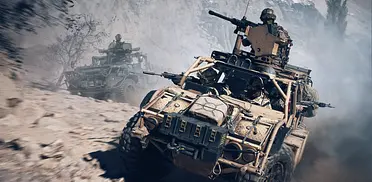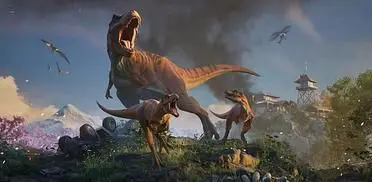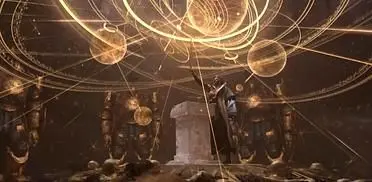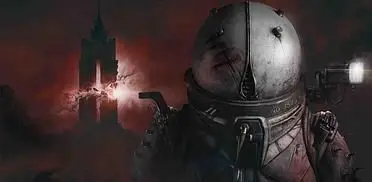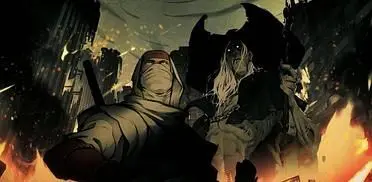We contacted Blair Fraser, Producer and Co-Founder, to have a nice, sinful chat:
Strategy Informer: So, you’re working on Rebellion but now there’s also the newly announced Sins of a Dark Age – its official then? Rebellion will be the last major content update for Solar Empire?
Blair Fraser: Sins of a Dark Age is official, yes - there is no turning back now! Our process is extremely fluid so I can’t say with any certainty that Rebellion is the last major content update for the original Sins of a Solar Empire but it’s certainly more likely than it was when we released the Entrenchment or Diplomacy expansions.
 |
Strategy Informer: On the Dark Age website, you seem to be suggesting you want to build up the overarching ‘Sins’ brand, into separate Sci-fi and Fantasy brands… is this a hint Solar Empire is not forgotten then?
Blair Fraser: Solar Empire is definitely not forgotten. We have big plans for it, but the focus right now is on Rebellion and Dark Age.
Strategy Informer: I clearly remember back in the early days you guys saying that a true single-player campaign was on the cards for Solar Empire. I take it those plans were scrapped then for the short term?
Blair Fraser: We spent quite a bit trying to figure out how to do a campaign for Solar Empire but in the end we just didn’t come up with something we were happy with so it was put back on the shelf. However, we don’t feel the time was wasted because many of the ideas that came up during that period made their way into Diplomacy and Rebellion and the rest will likely emerge at a later date.
Strategy Informer: On that note, we noticed Dark Age is also a more MP-focused game too… I guess you guys just aren’t fans of the offline-story campaigns?
Blair Fraser: The funny thing is we don’t consider Sins of a Solar Empire to be a multi-player focused game. It was designed primarily as a single-player sand box (ala the classic 4x titles like Master of Orion, Civilization, etc). Also, our data strongly suggests that the majority of hours spent playing Sins of a Solar Empire has been single-player time.
The only reason there is multiplayer at all actually is because a few us at Ironclad wanted to be able to fight each other and run comp-stomps. At the time, we predicted the return on investment for multiplayer would be small (and it was as only a very small fraction of Solar Empire players play multiplayer) but we did it anyway, because it was fun for us. As for offline-story campaigns, we ultimately just decided it wasn’t appropriate for this kind of game and we felt the sand box experience was very rich and fulfilling.
Strategy Informer: It’s interesting that you’ve focused so much on multi-player, especially in context where you mention mid-90’s RTS games… games which were popular BECAUSE of their single-player. Many older strategy fans would probably look to a strategy game to have that robust single-player experience… Do you think the strategy-genre will ever be able to move away from that? Should it?
Blair Fraser: One of our visions was to keep in mind heyday of the early 90’s when 4X space games were flourishing and re-imagine what one of those games would look like now. I can remember skipping school to just play turn after turn of something like Spaceward Ho! or VGA planets. Mostly I played them single-player with multiplayer now and then (it was tough to get everyone to submit their turns when you we had to do with 3.5 floppies). We decided early on that the focus in Sins of a Solar Empire would be the core single-player, sandbox experience with just enough multiplayer to capture those other moments.
Even without the campaign we felt we launched (and continued to improve) a very robust single-player experience. The strategy genre is constantly evolving but I do agree that certain classes of strategy games will always need to have a strong single-player component – I just don’t agree that a campaign is necessary to accomplish that. In-fact most of my favourite strategy games are primarily single-player and don’t have a campaign (e.g. MOO, Civ).
Strategy Informer: You mentioned also that you want a break from the sci-fi genre which is why Dark Age exists, but that you will return to Solar Empire because you have 'plans'. Just so we can try and deduce what that means… what’s your studio capable of? Is it a one-or-the-other type of deal or are you guys in a position to work on multiple projects at once?
Blair Fraser: We’ve been working on multiple projects for years now, so it’s definitely possible. Dark Age was developed in parallel to Entrenchment, Diplomacy, Rebellion and various other experiments that may or may not see the light of day. It’s no secret that part of our parallel development is accomplished by teaming up with great partners (Stardock is awesome) but we’ve also invested heavily into efficiency (e.g. a lot of automation, development practices, standards etc) that are turning out to yield a handsome reward.
It gives us the ability to rapidly fly through various ideas, experiment and produce content at a phenomenal pace. I’d be willing to bet our output per man-hour is much higher than average. Finally, we have the resources to expand the team as the project(s) demand – we just haven’t needed to yet.
Strategy Informer: You guys are a pretty quiet bunch for a developer. No one really knows what you guys are up to until you’re doing it. Is that a deliberate tactic or are you a little bit shy?
Blair Fraser: We just don’t like talking about something until we are very confident in the quality of the work. We try out a lot of ideas and most of them are garbage so we are embarrassed to talk about them because it may skew impressions in a negative way for eternity. This is a direct response to what happened to us with Sins of a Solar Empire. We produced a very low budget “concept trailer” to try and convey what we were trying to with the game as we searched for a publisher. But the internet being the internet has resulted in that video being the first result on YouTube to this day.
I still have a hard time reading the comments in there about how bad the game looks even though it reflects in no way the final graphics or gameplay. During that same timeframe we also made a number of comments about ideas for the gameplay and they’ve haunted us ever since. Finally, given our personalities, we find it difficult to experiment and be creative if it’s all in the public eye so we just keep quiet.
Strategy Informer: Solar Empire has arguably been leading the Space 4x niche for the past four years, but how much would you say is that down to luck as opposed to the game itself? There’s not really much competition about right now, and Sword of the Stars II for example, could possibly have been better if it had been done right (which it wasn’t).
Blair Fraser: We didn’t have much competition in the space-4x genre in 2008 and we still don’t so to that end I would say it’s a good portion of luck and good portion of execution. While we were passionate about making this kind of game, we knew it would be suicide if we didn’t have some sort of realistic business plan so we did our homework to verify there was a valid demographic and market opportunity. It was lucky that very few companies came to the same conclusion.
However, I don’t believe it was luck that allowed us to win wide-spread critical acclaim, sell over 2 million units and capture players who would never have tried a space game let alone a real-time strategy/4X, semi hardcore sandbox space game. I don’t believe you get that kind of response just because you filled a gap in a relatively small niche that no one else was filling.
We set out to just win the space-4x niche but in many minds we ended up winning the strategy niche and even the PC niche. When you head into those territories you are competing with some pretty top notch talent producing games in genres that are usually much more popular and accessible. I like to think that means it wasn’t all luck but if it was that is ok, I’m just happy so many people are enjoying the game and I don’t have to go back to working on McDonald’s.
Strategy Informer: Looking back over the last four years then, what’s the main thing you’ve taken away from working on Solar Empire? What do you think as space 4x games as a genre?
Blair Fraser: Wow, that’s a big question with so many answers. At this given moment, especially as we head towards the launch of Rebellion and the beta for Dark Age, I feel that the main thing to take away from Solar Empire is to try really hard to nail down the mission statement, mantra, slogan, key idea for the game and then iterate and experiment like crazy to find the best possible set of mechanics that accomplish that goal. I think that is the number one key to Solar Empire’s success and we are reliving it again with Rebellion and Dark Age and both are turning out quite fun as a result. I can’t understate how important it is to us that we have the freedom to take this approach.
Space 4x is one of my all-time favourite genres and despite appearing to be a very small niche, it remains remarkably resilient and successful. As our pre-orders of Rebellion are showing, there is still very much a demand for it and we will continue to make games in that space as long as possible. Long live the space opera and long live the pew pew!
 |
Strategy Informer: So, let’s talk more about Dark Age then – what made you want to go down the fantasy route?
Blair Fraser: We’ve been working on science fiction games for over a decade and while we will continue to work on them, we also wanted to try out something else. Fantasy was our favourite of all the alternatives.
Strategy Informer: Seems a bit cliché to go down the ‘Tolkien’ or ‘High’ fantasy route, doesn’t it? Considering you’re pushing the envelope in terms of genre-bending, could you not do better in terms of setting too? (Personally, I think Mount & Blade shows a pure medieval setting would be refreshingly welcome at the moment).
Blair Fraser: One of our primary goals was to avoid those exact routes among others. We haven’t exposed much our material, but we do feel we’ve created a new look and new universe that will feel fresh and invigorating. For example, when examining art styles we saw dominance in several areas including cartoony, Games Workshoppy, realistic, and anime-esque.
Lead by our art director (Craig Fraser), the art team finally settled on the very much unused style of “surrealism”. The whole feel is very much inspired by artists such as Dali and Bosch. We’ve also taken the same philosophical approach with the character types, lore, gameplay content and much more. I think this will be much more apparent when we get the game into people’s hands.
Strategy Informer: We notice that Dark Age is a free-to-play game, which obviously means that it’ll be using that business model that the MMO genre is currently championing. First off, what made you want to go down that route, and was it ever something you considered for Solar Empire?
Blair Fraser: The number one reason we took this route is to get the critical mass necessary for fast matchmaking. We aren’t Blizzard, so in order to get a large enough community to support this we decided to try the free-to-play model. We recognize that as a strategy game allowing players to buy power (pay to win) is a recipe for failure and it’s important that all players can gain free access to anything affects gameplay. When it comes to making money, our focus will be on selling aesthetics.
With Sins of a Solar Empire we trusted people would pay for a stable, fun game so we didn’t include DRM. Here we are trusting people will be willing to support another stable, fun game even though we are going to be giving a lot away for free. Going this route for Sins of a Solar Empire was never a consideration because it was primarily designed for a single-player experience – you don’t need a massive online audience to make that kind of game work.
Strategy Informer: There seems to be a huge emphasis on working as a team… clans will get on fine, obviously, but for randomly matched games… you’re putting an awful lot of faith in the internet to behave and play nice with one another.
Blair Fraser: Some of the most popular and successful strategy games now rely on people to behave and play nice with another to some extent. However, we do recognize that there are opportunities to further encourage cooperative play, reduce hostility and provide fallbacks for problems. For example one of the most annoying things in other games with a hero type mechanic is kill stealing – we just design this sort of thing right out of the game and introduce new ideas.
An example of a fallback would be how we deal with rage quitters. If players drop out of games we allow other players to join in to fill the position and reward them with free currency to buy stuff with. If they save the day and win the match they’ll earn even more. I think the best way to describe what we’ve done all the way from most game design decisions up to the meta game is to use positive reinforcement wherever possible.
Strategy Informer: Following on from that, how are you going to deal with commander rotation and making sure every gets a “fair” amount of chances to try out being the commander?
Blair Fraser: When a player decides to play a role (Commander or Hero) that is the role they will get to play even if they use the auto matchmaking. We’ll be using a market system where shortages in a given role type will be reflected by an increase in the amount of free currency you earn for playing that role and vice versa if there is an excess. It’s basically using supply and demand to encourage behaviour one way or the other. This is another reason why we feel that giving the game away to achieve critical mass is important.
Strategy Informer: Can you talk more about the ‘Hero’ and ‘Commander’ divide? Do players have both a ‘Hero’ avatar and then a ‘Commander’ (non-visible) avatar? That they level up separately and are used depending on what role they get assigned during missions?
Blair Fraser: When a player enters a game session he has already chosen what role (Commander or Hero) that he wants to play – the role is not assigned to him by the matchmaking. It’s kind of like saying “I want to play Zerg” or “I want to play Protoss”. When he completes a match, he receives experience (and free currency) based on the outcome of the match that is used to level up his player meta-level which is not related to his playing of a Commander or Hero.
I guess in the way you’ve described it, that would be akin to saying he just has one avatar, not two separate ones. However, he will be able to customize various meta-attributes that affect his Hero and Commander play style in different ways. In that sense, he does have two avatars. It’s a difficult to concept to describe in words but once you see how it plays out its pretty simple and easy to understand.
Strategy Informer: You guys not using Stardock again is probably the most surprising thing out of all this. What’s the story there?
Blair Fraser: We have been very happy working with Stardock for something like 6 years now and will likely continue to work with them into the future. Given the specific project needs of Sins of a Dark Age and various bandwidth issues it made more sense to work with Infinite Game Publishing in this case. These guys are another very talented bunch of gamers who really get what we are trying to do.
 |
Strategy Informer: I noticed you’ve adopted the Blizzard “When it’s done” stance concerning release date. Is there a window at least you’d like to hit?
Blair Fraser: Sometime in the next two years would be ideal. Beta starts this summer but as with Sins of a Solar Empire, it could easily take a year or more to sort out everything properly. Our betas are not demos, they are rough, typically not very fun until late, and they can change radically over the duration – again, look at some of the radical shifts during the Sins of a Solar Empire beta that we made as a direct consequence of mass public feedback. In the end, it turned into a much better game so we are looking to emulate the same process – it’ll be done when it’s done.
Thanks to Blair for taking the time to talk to us – a rare treat considering how much they keep to themselves. It’ll be sad to see Ironclad biding goodbye to the stars for the time being, but who knows, maybe Sins of a Dark Age will live up to its heritage. Don’t forget to check out our earlier impressions of the Beta build.
